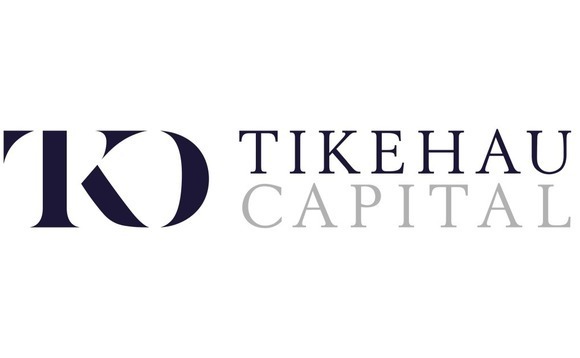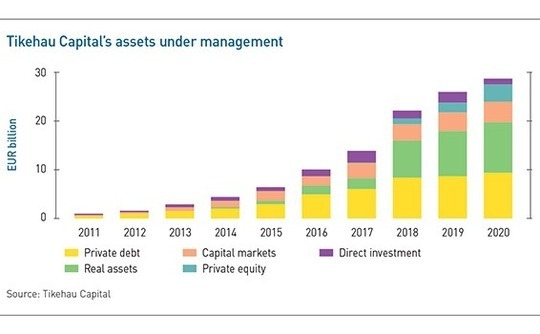
LP interview: Tikehau Capital

Having built out its business aggressively in Europe in recent years, Tikehau Capital is eyeing steady Asian expansion. This means more PE investment in the region and – potentially – more strategic additions
Tikehau Capital's approach to co-investment in Asia cuts against the grain. While other LPs typically draw comfort from having portfolio GPs do the heavy lifting on deal sourcing and due diligence, and double-down on a company by coming in alongside the fund, Tikehau has gone solo. Half of the capital deployed to date from its debut Asia special opportunities fund is in co-investments, but none of them came via portfolio managers.
"It's not that we don't expect co-investment from our GPs, it's just that we haven't pushed them to show us opportunities. That is something we can activate," says Jean-Baptiste Feat, co-CIO and co-head of Asia, Tikehau Investment Management, the firm's independent asset management unit.
"When we invest in funds, we make it clear we are happy to do co-investments and have the resources to do them. But what we are getting direct is significant, so we don't feel the need to do investments coming from GPs. If we are invested in the fund, we have exposure to those deals, and it is always better to be diversified. Generating our own deal flow is also better from an economics perspective."
Paris-headquartered Tikehau has undergone rapid expansion over the past decade, its assets under management (AUM) swelling from less than EUR1 billion ($1.2 billion) in 2011 to EUR28.5 billion at the end of 2020. Following an IPO in 2017, AUM has more than doubled as real assets and private equity became more meaningful parts of what was previously a private debt-dominated business accompanied by smaller allocations to capital markets and direct investment. Headcount has grown nearly threefold.
Nevertheless, the firm claims to retain its entrepreneurial spirit, as evidenced by a willingness to back its own strategies. At 10%, Tikehau's shareholder equity is relatively high among listed alternative asset managers, and this feeds through to large balance sheet contributions – not least to private equity. Nearly EUR1 billion of the EUR3.5 billion portfolio comes from internal sources. It wasn't until 2018 that Tikehau started taking third-party capital for PE; before that, it was all direct balance sheet deals.
"The way we have developed the business since 2004 is by putting in teams where we think there are strategies that can be grown. We expand those teams if and when we manage to raise funds," says Feat. "Right now, we are investing our first Asia Opportunities Fund. If the second vintage ends up 3-4x the size of the first, we would invest more in our resources. But it is a gradual process."
Accessing Asia
Tikehau established a foothold in Asia in 2014 with the opening of a Singapore office. Seoul and Tokyo followed in 2017 and 2019, respectively. They sit alongside New York as the only non-European locations among the firm's 12 offices. Part of the impetus was fundraising, with Asia accounting for 5% of AUM. On a global basis – no specific figures are given for Asia – Tikehau raises 48% of its capital from asset managers and other institutions, 22% from family offices and private clients, and 16% from banks.
In 2019, the firm formed a partnership with Japan's T&D Insurance Group, offering greater proximity to financial institutions in that country. Japanese LPs featured in its direct lending funds for the first time last year. Singapore's Temasek Holdings is another partner in the region, having acquired a minority stake in Tikehau in 2016. Exploring opportunities with Temasek is another reason to be in Singapore, as is Tikehau's 50% holding in IREIT Global, a local real estate investment trust (REIT) that targets Europe.

"We share a lot of structural points. They are entrepreneurs and we have a strong entrepreneurial DNA," says Feat. "We saw the benefit of integrating a new strategy and being able to develop a secondary strategy in Asia. Maybe it will become more global."
Tikehau currently has approximately seven investment professionals based in Asia, including a small capital markets team. Most of the IREIT-related headcount is in Europe. In terms of private equity, the firm has over a dozen GP relationships in the region, typically middle-market GPs focused on buyouts or growth deals with funds of $200 million to just under $1 billion. About $100 million has been deployed from the special opportunities vehicle so far. A final close is expected in the region of $200 million.
"We are flexible, opportunistic, and happy to look at a variety of things," says Feat. "We want Asia-based GPs with local teams, not the Asian arms of global firms. We like people who can be operationally involved in companies, so they bring real value to investments, rather than making pure financial investments with leverage. We also want them to understand the areas they are operating in."
Fund and co-investments cover most major geographies in the region. Earlier disclosed direct deals range from Singapore workspace provider JustCo – a S$4 million ($2.9 million) investment in 2015 that was exited via an up-round in early 2020 with an 8x return – to Judo Capital, an Australia-based lender to small and medium-sized enterprises (SMEs). Tikehau started talking to Judo before its seed round but didn't commit until early 2019, by which point the business was in operation.
"We were comfortable with the sector because we know financial services. We were comfortable with the team because they are experienced. And we were comfortable with the market opportunity because Australian banks have retrenched significantly from SME lending, they just aren't focused on it anymore. It creates a huge opportunity for groups like Judo," says Feat.
Growth agenda
Private equity made up 12% of Tikehau's AUM at the end of the 2020, trailing real assets (36%), private debt (33%), and capital markets (15%). But the step up from EUR2 billion, or 8%, 12 months earlier made it the firm's fastest-growing business line. Much of the new capital came from Ace Capital Partners – a GP acquired in late 2018 as part of efforts to move to an asset management model – which was chosen to manage a fund intended to support France's aerospace industry through the pandemic.
In Asia, meanwhile, Feat claims that COVID-19 has not impacted the pace of deployment. Rather, the firm has adapted, relying on partners in different geographies to help with due diligence and accepting that processes take more time. This doesn't mean new managers or new co-investments are off-limits. "You can't stick with existing relationships; you need to keep moving and looking at new opportunities," he notes. "You can't just sit in your chair waiting for COVID-19 to disappear before you start."
This also reflects the attitude towards Asian expansion in the longer term. Opportunism, flexibility, and entrepreneurship are emphasized. The Foundation relationship was the product of general interest in secondary deals leading to an introduction to management, and a willingness to act with conviction on identifying a growth angle that appealed. It is unlikely to be a one-off.
"We are looking to develop the business in Asia, and there a few strategies that make sense for us, based on what we do in Europe," Feat adds. Prior to taking up the Asia role, he spent seven years as co-head of private debt, so there is a familiarity with how the market is moving in this part of the world and the incremental consolidation. But he won't be drawn further. "Are we going to launch private debt in Asia? Who knows?"
Latest News
Asian GPs slow implementation of ESG policies - survey
Asia-based private equity firms are assigning more dedicated resources to environment, social, and governance (ESG) programmes, but policy changes have slowed in the past 12 months, in part due to concerns raised internally and by LPs, according to a...
Singapore fintech start-up LXA gets $10m seed round
New Enterprise Associates (NEA) has led a USD 10m seed round for Singapore’s LXA, a financial technology start-up launched by a former Asia senior executive at The Blackstone Group.
India's InCred announces $60m round, claims unicorn status
Indian non-bank lender InCred Financial Services said it has received INR 5bn (USD 60m) at a valuation of at least USD 1bn from unnamed investors including “a global private equity fund.”
Insight leads $50m round for Australia's Roller
Insight Partners has led a USD 50m round for Australia’s Roller, a venue management software provider specializing in family fun parks.








